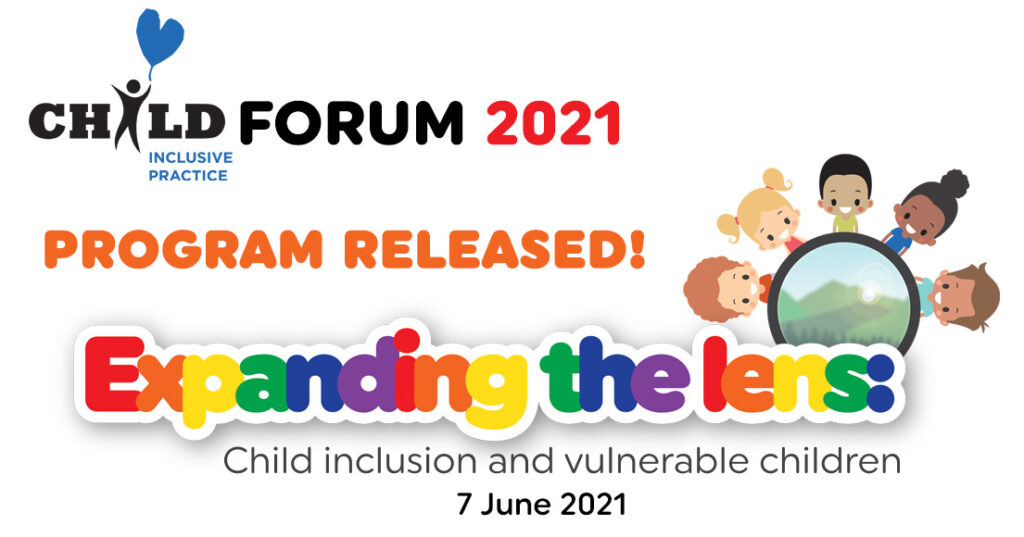
No. 6, 2021 | 5 May 2021
Go to:
From FRSA's Executive Director
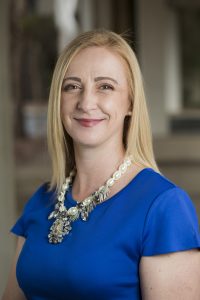
As part of FRSA’s submission to DSS’ Consultation “Supporting Improvements to the Families and Children Activity” earlier this year, FRSA did invest a lot of time and energy ‘reimagining’ the Outcomes Framework that is intended to underpin this activity moving forward. Whilst plenty of organisations could easily ‘see themselves’ in the Outcomes Framework as proposed in the Discussion Paper, we did feel that this conversation gave us an opportunity to look deeply into what the services are attempting to achieve with the people and communities they work with. We asked: how will family and relationships services show they have made gains? Who benefits from these services and why? And what are the ‘external factors’ impacting on the services’ ability to deliver impact/outcomes?
As we look to the Federal Budget next week, I am reminded that so many vital decisions that we describe as ‘external factors’ in the Outcomes Framework are vested with the Federal Government and the funding decisions they make. The decisions made by the Federal Government impact on the ability of our service providers to achieve their goals and projected outcomes with the people they are working with. ‘External Factors’ such as Material Basics (housing, financial security/income, technology) and socio-economic conditions including employment opportunities come very clearly to the fore given contemporary conversations.
Once again the vast amount of research and evidence points to the fact that current levels of income support are insufficient to support individuals and families to live a decent life, free from poverty and hardship. This amplifies the importance of secure housing in providing a strong base for individuals and families.
Anglicare Australia’s snapshot of housing affordability is a stark reminder of how unattainable some of these basics are for the 1.6 million people now reliant on JobSeeker or Youth Allowance as their main form of income (important side note, the current rate of JobSeeker will leave one in six children living in poverty). Out of 74,000 rental listings across Australia the rental affordability shapshot found that there were only three rental listings that would be affordable for these people.
For people living with family violence we know that financial security and housing availability weigh heavily on their decision to stay or leave their offending partner. The risk of homelessness and financial instability are significant realities for people escaping family violence.
I should at this point acknowledge that not all the funding and policy responsibility sits with the Commonwealth Government on these issues and importantly states and territories have their role to play.
Next week’s Budget will once again be focused on securing Australia’s economic security against the backdrop of the pandemic. It will be interesting, as always, to see how the Government’s Budget decisions reveal their policy priorities moving forward.
We will, as always, be working on Budget night and will be delivering to our members the view of the Federal Budget through an FRSA lens. So, for FRSA Members Delegates reading this e-bulletin, be sure to check your inboxes on Wednesday morning!
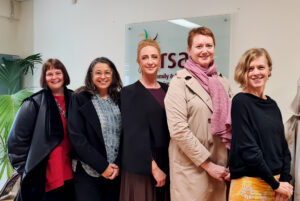
On a different note, it was great to have Rae Kaspiew and Kelly Hand from the Australian Institute of Family Studies visit us yesterday for a catch up and then a quick hello from Susan Cochrane from Relationships Australia National.
I am also really pleased to let readers know that we have recently signed off on our agreement with AIFS to undertake the Telepractice Research with the FRSA membership, which is very exciting! We will have more information to follow in the next few weeks.
Kind regards,
Jackie Brady
FRSA Executive Director
Children exposed to intimate partner violence twice as likely to have poorer language skills and mental and physical health

A new study has found up to half of all children with language difficulties and mental and physical health problems have been exposed to intimate partner violence, prompting calls for health and social care services to provide more effective identification and early intervention.
The research, led by the Murdoch Children’s Research Institute and published in The BMJ, showed children exposed to intimate partner violence from infancy were twice as likely to have a psychiatric diagnosis, emotional and behavioural difficulties, and impaired language skills at age 10. They were also more likely to have asthma and sleep problems. Read more.
DSS Consultation: Supporting Improvements to the Families and Children Activity
 DSS has advised that the slides and responses to questions taken on notice from the webinar, ‘What we have heard so far’ online provider forum: Sharing your feedback, held on 30 March 2021, are now available on the DSS Engage website.
DSS has advised that the slides and responses to questions taken on notice from the webinar, ‘What we have heard so far’ online provider forum: Sharing your feedback, held on 30 March 2021, are now available on the DSS Engage website.
Visit the Families and Children Activity page on the DSS website for further updates on consultation outcomes. If you require further information about the outcomes of this consultation, please contact DSS directly at families@dss.gov.au.
Economic Disadvantage: Mission Australia’s Youth Survey 2020 Sub-Report
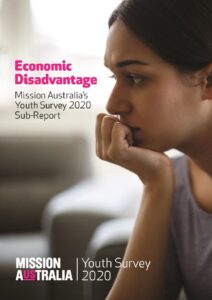 A new Mission Australia report has revealed that economically disadvantaged young people face greater social exclusion and more limited opportunities compared to their more advantaged peers.
A new Mission Australia report has revealed that economically disadvantaged young people face greater social exclusion and more limited opportunities compared to their more advantaged peers.
The findings indicate many young people from disadvantaged backgrounds are more likely to be excluded from important school and friendship activities because they can’t afford them, go without essentials including meals, face greater mental health concerns, are subjected to unfair treatment because of their financial backgrounds, and endure conflict or violence within their family. Read the full report.
Rental Affordability Snapshot report
 Anglicare Australia has released their annual Rental Affordability Snapshot. The Snapshot surveyed over 74,000 rental listings across Australia and found that:
Anglicare Australia has released their annual Rental Affordability Snapshot. The Snapshot surveyed over 74,000 rental listings across Australia and found that:
- 386 rentals were affordable for a single person on the Age Pension
- 236 rentals were affordable for a person on the Disability Support Pension
- 3 rentals, all sharehouses, were affordable for a person on JobSeeker
- 0 rentals were affordable for a person on Youth Allowance.
Anglicare Australia Executive Director Kasy Chambers said that the rental crisis is getting worse:
“The ‘new’ rate of JobSeeker is so low that it hasn’t made a dent in affordability. There are even fewer affordable rentals now than there were on the old rate of Newstart,” Ms Chambers said.
“People who have kept their jobs are hardly better off. A person on the minimum wage can afford just one percent of rentals – less than half of what was available last year. The recovery is leaving too many people behind.”
Study shows the reality of two-speed COVID recovery
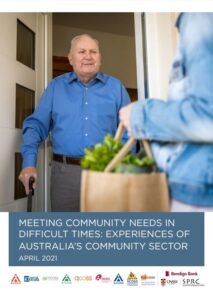 Community sector leaders have reported a surge in unmet demand for services dealing with economic hardship, homelessness, mental health and domestic violence as a result of under-funding, according to research conducted by the Social Policy Research Centre at UNSW Sydney.
Community sector leaders have reported a surge in unmet demand for services dealing with economic hardship, homelessness, mental health and domestic violence as a result of under-funding, according to research conducted by the Social Policy Research Centre at UNSW Sydney.
The report, Meeting community needs in difficult times: experiences of Australia’s community sector, examines how Australia’s community services sector is addressing high levels of need in the community during early 2021, a period in which Australian communities sought to recover from the crises of 2020. Key findings include:
- Leaders are observing very high levels of disadvantage and demand in 2021
- People are experiencing significant economic hardship
- Mental health services are under strain
- There has been inadequate investment in responding to domestic and family
violence - Meeting need for housing and homelessness services are key priorities
- Meeting demand in the recovery period
Making a difference to children and families in financial stress

How prevalent is poverty and financial stress in Australian children and families? What has been the impact of COVID-19? And how much would it cost to address poverty and ensure all children grow up with the same opportunities?
An ANU study commissioned by the Brotherhood of St. Laurence and Social Ventures Australia shows that increased social security payments (the Coronavirus Supplement) made a big difference to many families. Lifting social security spending could yield strong, widespread benefits. The research models:
- Australian trends in poverty, child poverty and financial stress for families relying on income support
- The impact of the Covid-19 pandemic and resulting income support changes on poverty and child poverty rates
- The optimal level of income support required to reduce poverty and financial stress for families and children in the most cost-effective way
Register today for the online Child Inclusive Practice Forum 2021 on Monday 7 June!
This year’s program is centred around the theme “Expanding the Lens: Child Inclusion and Vulnerable Children”. The COVID-19 Pandemic brought with it additional challenges for vulnerable children. This CIP forum provides a great opportunity to discuss the impact of COVID-19 on children through a CIP lens and the learnings from these experiences that will impact practice from hereon in.
| Registration Categories | Fees |
| FRSA Member | $95 |
| Non-FRSA Member | $150 |
Forum registration includes streaming access to:
- The Keynote address/es
- All concurrent presentations
- A panel discussion
- The opportunity to participate in the live Q&A with speakers
Access to the on-demand library for up to 60 days post forum
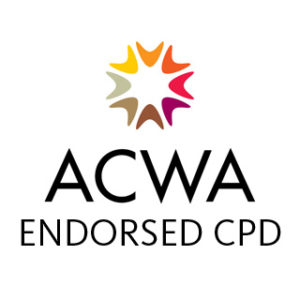 This year’s CIP Forum is an Australian Community Workers Association endorsed CPD event. All registrants of the event will be eligible for seven Continuing Professional Development hours/points for their participation.
This year’s CIP Forum is an Australian Community Workers Association endorsed CPD event. All registrants of the event will be eligible for seven Continuing Professional Development hours/points for their participation.

Government announces $1.7 billion package to ease childcare costs for working families
Over the weekend, the Government announced it will make an additional $1.7 billion investment in childcare as part of the 2021-22 Budget.
The changes are also expected to add 300,000 hours of work a week, equivalent to about 40,000 extra work days, adding $1.5 billion a year to gross domestic product.
From 1 July 2022, the childcare subsidy for families with two or more children aged five and under will increase to a maximum of 95 per cent. Read more.
Queensland's domestic violence taskforce public submissions open
Queensland’s Attorney-General and Minister for the Prevention of Domestic and Family Violence, Shannon Fentiman, is welcoming women to come forward and talk about their experiences reporting abuse to police and dealing with the criminal justice system in the state. Public submissions are now open to the Women’s Safety and Justice Taskforce chaired by former judge, the Honourable Margaret McMurdo AC.
Submissions can be made through the secure portal on the taskforce website at www.womenstaskforce.qld.gov.au
Submissions to Government – reminder of due dates
The Australian Government currently has two consultation/reviews underway, with submission due dates ending in May.
Children’s Contact Services: establishment of an accreditation scheme
The Attorney-General’s Department is currently consulting on establishing an accreditation scheme for Children’s Contact Services. The Department’s consultation paper was released in March 2021.
With a number of unregulated private providers offering Children’s Contact Services, FRSA has been calling for stronger oversight through an accreditation scheme for some time now.
Submissions close on 14 May 2021. FRSA is working with a member advisory group to develop a response. For details on how to make a submission or to download the consultation paper and fact sheet, visit the Attorney-General’s Department website.
Review of direct cross-examination ban – Family Law Act 1975
As reported in last fortnight’s eBulletin, the government has just commenced a review of amendments to the Family Law Act 1975, which were passed in late 2018 and designed to protect victims of family violence by banning direct cross-examination in certain circumstances in family law matters involving family violence.
Mr Robert Cornall AO and Ms Kerrie-Anne Luscombe have been appointed to conduct the review, and will report to government by August 2021. Submissions are due by 28 May 2021.
For more information about the review visit the Attorney-General’s Department website.
Developing the next National Plan to Reduce Violence against Women and their Children
Reminder that the public consultation on the next National Plan to reduce family, domestic and sexual violence is open. You can have your say here . The consultation closes 11:59pm, Saturday 31 July 2021.

Treasured lives research
 New research from Anglicare Tasmania is calling for coordinated support for people who care for older Tasmanians living with challenges related to hoarding and/or maintaining a healthy home.
New research from Anglicare Tasmania is calling for coordinated support for people who care for older Tasmanians living with challenges related to hoarding and/or maintaining a healthy home.
The research by Anglicare’s Social Action and Research Centre (SARC) includes interviews with 25 people who support an older person living with these challenges. Researcher Lindsey Fidler said that as family members and carers reflected on the experiences and needs of their loved ones, they expressed feelings of isolation, frustration and anxiety—but also a high degree of empathy and compassion. Read more.
headspace Sale Celebrates its Official Opening
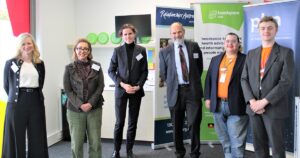 Relationships Australia Victoria gathered with community leaders, headspace staff, service providers and local young people on Tuesday 13 April 2021 to celebrate the official opening of a new headspace site in Sale.
Relationships Australia Victoria gathered with community leaders, headspace staff, service providers and local young people on Tuesday 13 April 2021 to celebrate the official opening of a new headspace site in Sale.
headspace Sale provides support for mental health, work and study, and alcohol and other drugs to young people aged 12-25 years in the Wellington Shire. Read More.
AFR Boss Best Places to Work awards
 Relationships Australia NSW has been named in the top 10 non-profit organisations in Australia and New Zealand in The Australian Financial Review’s Boss Best Places to Work Award.
Relationships Australia NSW has been named in the top 10 non-profit organisations in Australia and New Zealand in The Australian Financial Review’s Boss Best Places to Work Award.
CSSA farewells departing Chief Executive Officer
 Catholic Social Services Australia (CSSA) has bid farewell to CEO Dr Ursula Stephens, who has taken up the role of CEO of Australian Catholic Safeguarding Ltd, the company established in December 2020 to oversee safeguarding, child protection and professional standards matters for the Church in Australia.
Catholic Social Services Australia (CSSA) has bid farewell to CEO Dr Ursula Stephens, who has taken up the role of CEO of Australian Catholic Safeguarding Ltd, the company established in December 2020 to oversee safeguarding, child protection and professional standards matters for the Church in Australia.
“Through our incorporation and the change of board chair, Ursula has provided calm and highly competent leadership and support that has served our network extremely well,” Catholic Social Service Australia chair, Francis Sullivan said. Read more.

Family Matters National Week of Action
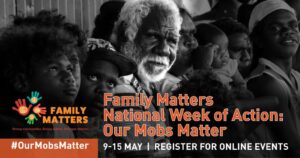 National Week of Action is coming up on 9 – 15 May 2021. This year’s theme is ‘Our Mobs Matter’.
National Week of Action is coming up on 9 – 15 May 2021. This year’s theme is ‘Our Mobs Matter’.
Family Matters has organised a week of online events and actions, and calls on supporters to join in building their skills and knowledge and be part of their work to ensure all our children and young people grow up strong and safe in their families, cultures, and communities. Find out more here.
National Carer Wellbeing Survey
This survey, conducted by researchers from the University of Canberra, asks about the types of care you provide (or have provided in the past) to others. This survey also asks about the types of supports or services you may have heard of or accessed in your caring role, including the new Carer Gateway service funded by the Australian Government. The carer wellbeing survey can take either 10 or 30 minutes to complete (depending on how many questions you choose to answer), is available in English, Arabic, Vietnamese, Simplified Chinese and Italian, and is open until 11.59 pm (AEST), 9 May.
National Aboriginal and Torres Strait Islander Early Childhood Strategy
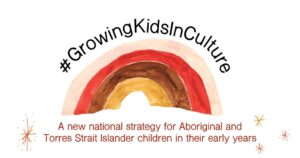 SNAICC is working with the Australian Government through the National Indigenous Australians Agency (NIAA) to develop a new National Aboriginal and Torres Strait Islander Early Childhood Strategy.
SNAICC is working with the Australian Government through the National Indigenous Australians Agency (NIAA) to develop a new National Aboriginal and Torres Strait Islander Early Childhood Strategy.
The Strategy will align with the National Agreement on Closing the Gap, supporting Aboriginal and Torres Strait Islander communities and their community-controlled services to lead the responses to children’s needs. It will address outcomes across all aspects of young children’s lives, including early learning, health, disability, wellbeing, care and development.
There are multiple ways you can provide input on development of the Strategy:
Two online surveys are available. There is a national public survey for people who work with Aboriginal and Torres Strait Islander families and children (professionals and organisations). There is also a survey especially for families and carers of Aboriginal and Torres Strait Islander children.
The surveys will take approximately 15 minutes to complete. The surveys close on Wednesday 19 May.
National Families Week 2021
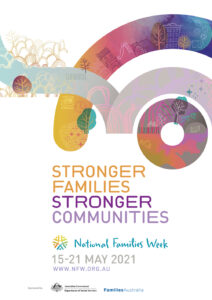
Held each year from 15 May, the United Nations International Day of Families, to 21 May. This year’s National Families Week theme is ‘Stronger Families, Stronger Communities’. It highlights the important role families play as the central building blocks of our communities. Community wellbeing is enhanced by family wellbeing. Find out more, register your event or download resources via their website.
CLOSING SOON: Compliance with and enforcement of family law parenting orders research project
 The Australian Institute of Family Studies has been commissioned by Australia’s National Research Organisation for Women’s Safety (ANROWS) to undertake research in relation to the compliance with and enforcement of family law parenting orders. The research will involve multiple studies, including a survey of legal and non-legal family law system professionals.
The Australian Institute of Family Studies has been commissioned by Australia’s National Research Organisation for Women’s Safety (ANROWS) to undertake research in relation to the compliance with and enforcement of family law parenting orders. The research will involve multiple studies, including a survey of legal and non-legal family law system professionals.
You are invited to take part in this survey if you are a legal professional (including judicial officers, barristers and solicitors) and non-legal professionals including: FDR practitioners and professionals working in post-separation support services, including parenting order programs and family violence sector professionals.
Click here to complete the survey. For more information on the research click here to download the information sheet.
CFCA Needs and impact survey
 The Child Family Community Australia Information Exchange (CFCA)is running a brief survey throughout May for child, family and community welfare professionals.
The Child Family Community Australia Information Exchange (CFCA)is running a brief survey throughout May for child, family and community welfare professionals.
The survey aims to assess if they are currently supporting you in the best way to use evidence in your work with children and families. CFCA are also interested in the issues that are arising for you, and how they can support you to respond using evidence. Click here to complete the survey. The survey takes roughly 5 minutes and will be open until Monday 31 May.
Effective Online Group Leadership Workshop
SUNSHINE CIRCLES – Albury
SUNSHINE CIRCLES – Shepparton
Virtual classroom training programs
Education and training of staff, volunteers and leadership teams is a key building block of a child safe culture, one that is embedded throughout all levels of the organisation and is consistently maintained. Whether you are an executive manager or a frontline worker, Child Wise’s child safety programs are designed to suit your needs.
Browse all upcoming virtual classroom training programs for May at childwise.org.au/events and book early to secure your spot. If the advertised dates aren’t suitable for you, or if you would like Child Wise training tailored for your organisation, contact them at 1300 244 539 or info@childwise.org.au.
VIC
Senior Case Manager | Anglicare Victoria
People & Culture Manager | Pronia
Coordinator Counselling/Redress | Relationships Australia Victoria
ACT
Counselling Manager (Practice Manager Therapeutic Services) | Relationships Australia Canberra & Region
WA
Practice Consultant (Senior Manager), Family Law Services | Anglicare WA
SA
Foster Care Case Worker (Assessment and Training) | Lutheran Care
NSW
Manager Permanency Support Program| Anglicare NSW South, West & ACT
Family Dispute Resolution Practitioner | Relationships Australia NSW
Trainer – Graduate Diploma of Relationship Counselling | Relationships Australia NSW
Trainer – Graduate Diploma of Family Dispute Resolution | Relationships Australia NSW
Student Clinic Supervisor- Family Therapy | Relationships Australia NSW
Casual Trainer | Relationships Australia NSW

Pathways to regional housing recovery from COVID-19 | Australian Housing and Urban Research Institute
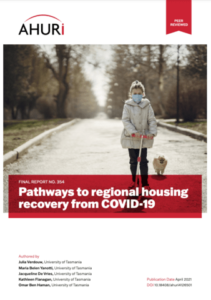
This research examines the consequences of COVID-19 for households in regional Australia, and considers that post-pandemic recovery models designed for large cities such as Sydney or Melbourne may not work in regional areas or less-urbanised states like South Australia or Tasmania.
Financial stress and social security settings in Australia | Centre for Social Research and Methods (ANU)
This research finds that inadequate social security payments play a significant role in shaping poverty and financial stress trends in Australia. It also finds that it is possible to address these challenges by increasing the overall social security budget.
Growing up digital Australia: phase 2 technical report | Gonski Institute for Education (UNSW)
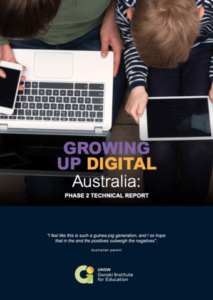 This research explores the perceptions of parents, carers and grandparents about the effects of digital media and technologies on children and youth over time.
This research explores the perceptions of parents, carers and grandparents about the effects of digital media and technologies on children and youth over time.
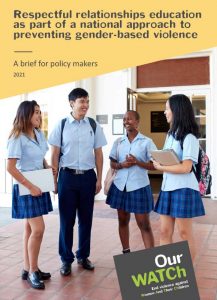 This policy brief provides guidance to education policy-makers and bureaucrats, as well as other interested stakeholders, on how to design, implement, coordinate and monitor evidence-based respectful relationships education.
This policy brief provides guidance to education policy-makers and bureaucrats, as well as other interested stakeholders, on how to design, implement, coordinate and monitor evidence-based respectful relationships education.
Framework to inform the development of a national Aboriginal and Torres Strait Islander Early Childhood Strategy | SNAICC – National Voice for our Children
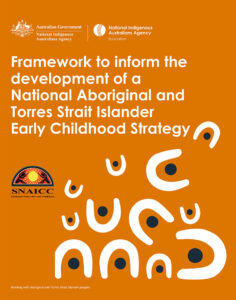 Across Australia, families and communities successfully support and nurture their young children. However, wide gaps in early development, health and early learning outcomes persist. This document sets the foundation and will inform the development of a national Aboriginal and Torres Strait Islander Early Childhood Strategy.
Across Australia, families and communities successfully support and nurture their young children. However, wide gaps in early development, health and early learning outcomes persist. This document sets the foundation and will inform the development of a national Aboriginal and Torres Strait Islander Early Childhood Strategy.
The Journey to Evidence: Adopting Evidence-Based Programs in an Australian Child Welfare Organization | Human Service Organizations: Management, Leadership & Governance
In response to a crisis in the child welfare sector in Australia, the OzChild executive leadership team (ELT) moved to adopt evidence-based programs (EBPs) to deliver improved outcomes to children and families. This case study focuses on the adoption and implementation of the first suite of EBPs, examining the strategies, decision-making processes and challenges addressed by the ELT. Interviews with leaders and managers involved are situated within existing research on organizational change and EBP adoption in human service organizations.
Want to submit something to the FRSA eBulletin?
If you have an news item or event that you would like to be featured in a future eBulletin please submit your announcement via the form below or email communications@frsa.org.au with the subject “FRSA eBulletin submission”.
Please note FRSA members receive priority for items posted in the eBulletin. And to keep information current, relevant and useful, submissions will not be repeated from week to week.
Subscribe
Subscribe to receive future eBulletin editions directly to your inbox!




